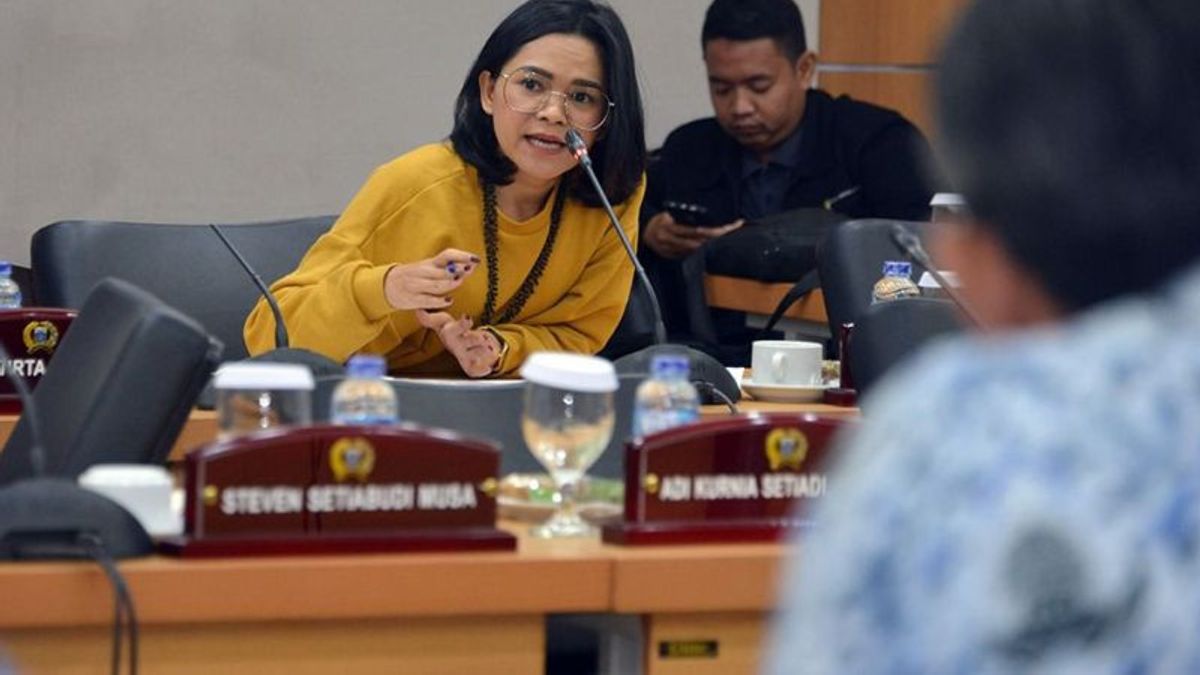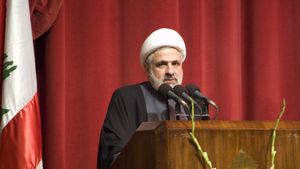JAKARTA - Member of the DKI Jakarta DPRD from the PSI faction, Eneng Malianasari, doubts that the DKI Jakarta Transportation Agency's policy of separating men's and women's seats in public transportation is effective in preventing acts of harassment.
The reason, according to Eneng, in carrying out this policy is that Dishub does not think about the narrow angkot space to divide it into a special room for women and a special room for men.
"Angkot is different from TransJakarta or the Commuter line, which has a large space," said Eneng in Jakarta, Antara, Monday, July 11.
Furthermore, this member of Commission C of the DKI Jakarta DPRD explained that the problems that occurred were not only about the implementation of the policy, but also how to monitor and control what law enforcement officers did so that such incidents of harassment would not be repeated.
"The government together with all stakeholders, namely the National Human Rights Commission, the National Commission for Children and Women, as well as other NGOs to sit down together to discuss a prolonged strategy so that there will be no more harassment in public transportation, especially angkot. again," said Eneng.
According to him, the rampant level of violence and sexual harassment is certainly a concern for all parties, the government also needs to formulate a system to create a sense of security and comfort for residents while on public transportation.
"According to Amnesty International that sexual harassment and violence are serious human rights cases. So acts of sexual violence, including sexual harassment, must be handled in a systematic and organized manner in order to break the chain and further prevent sexual harassment from happening again. The community's obligation to report perpetrators of sexual harassment has also been regulated in a systematic manner. law. In Law No. 12 of 2022 concerning the Crime of Sexual Violence (TPKS), which was ratified on April 12, 2022," he said.
Law enforcement officers also, he added, must give the strongest punishment to perpetrators of sexual harassment or violence in accordance with applicable laws.
Article 5 of the TPKS Law stipulates that perpetrators of non-physical sexual acts can be sentenced to up to 9 months in prison. Not only that, the TPKS Law also regulates physical sexual harassment as a crime of sexual violence. According to Article 6 of the TPKS Law, perpetrators of physical sexual harassment can be sentenced to up to 12 years in prison and a maximum fine of Rp. 300 million.
Previously, the DKI Jakarta Transportation Agency separated special seats for men and women in one angkot to prevent cases of sexual harassment.
"We will arrange seat separation for passengers in the angkot," said Head of the DKI Jakarta Transportation Agency, Syafrin Liputo in Jakarta, Monday.
Anies Baswedan's subordinate explained that later female passengers would sit in the left row of seats and male passengers on the right.
However, he did not specify when the separation of passengers would take effect.
He hopes that the separation will prevent cases of alleged sexual harassment that occurred some time ago.
The DKI Transportation Agency currently states that the entire angkot fleet is without window film so that it is more transparent.
Meanwhile, for public transportation that has been integrated in the Jaklingko program through PT TransJakarta, all surveillance cameras or CCTV have been installed.
The English, Chinese, Japanese, Arabic, and French versions are automatically generated by the AI. So there may still be inaccuracies in translating, please always see Indonesian as our main language. (system supported by DigitalSiber.id)













